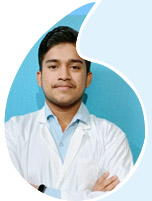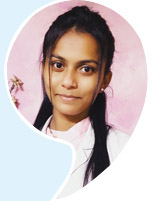IIRF Ranking 1
Technical Private University in West Bengal
Best in placement
Awarded by ABP, TOI, 24 GHanta, News18 Bangla
Scholarships Rs 25Cr awarded
36 Lakhs LPA Offered
Admissions
70444 47723Academics
+91 33 7144 5590
ATTENTION! Seats are booked for most of the programmes. Only the last few are left for selected courses. For details and enquiry, kindly reach us out at 70444 47723.Admission is closing soon!
BSc Medical Lab Technology (MLT) is a 3 years 6 months programme at Brainware University. The bachelor of science in medical lab technology applicants will find all admission relevant information on this page including mlt course overview, mlt syllabus outline, mlt career options, as well as learning benefits.
Medical Laboratory Professionals work in all areas of a clinical laboratory including blood banking, clinical biochemistry, haematology, immunology, histopathology and medical microbiology.
Minimum 55% in Science stream with an assemblage of Physics, Chemistry and Biology.
Candidates who have accomplished a degree in Medical Laboratory Technology have a different type of career potency. In India, the demand for medical laboratory technicians or technologists is high, they will accommodate numerous applications and several specializations, and this demand is expected to rise in the coming years. Those who are freshly graduated from a BSc Medical Laboratory Technology course, have a chance to get attached with several Governments and also private organizations.
| Programmes | Duration | Fees(INR) | Eligibility Criteria |
|---|---|---|---|
| BSc in Medical Lab Technology | 3 years + 6 months Internship | 3,47,200 | 55% marks or equivalent grade in '10+2' examination with individual pass marks in both theory and practical in Physics, Chemistry, Biology and English and upper age limit is 40 as on 31st December, year of admission |
| BSc in Medical Lab Technology - LE | 2 years + 6 months Internship | 1,94,800 | 45% marks in Diploma in MLT from a Govt recognized institution and upper age limit is 40 as on 31st December, year of admission |

| Laboratory | Facilities / Service available |
|---|---|
| Medical Laboratory Technology lab-I | Hot air oven, PH meter, Rotary shaker, Electric balance, Microscope, Centrifuge, Auto clave, Serological bath, Magnetic stirrer, RIS-24 puls LCD version, Refrigerator, Pipette, ESR stand, Semi Auto Analyzer & Colorimeter. |
| Medical Laboratory Technology lab-II | Electric balance, Microscope, PH meter, Magnetic stirrer, Centrifuge, Spiro meter, Hot air oven, Serological bath, Pipette, ESR stand |



Please follow the given Admission Procedure:

"We are given extensive exposure to the clinical environment right from the initial years, including hands-on training sessions, lectures and healthcare seminars."
Rahul Chatterjee B.Sc MLT"Each student is getting enough opportunities at the laboratories and library to upgrade."
Sumana DasB.Sc BMLT

BSc in Medical Lab Technology is an undergraduate degree program that focuses on providing students with in-depth knowledge and practical skills related to medical laboratory science. It covers various aspects of clinical laboratory testing, diagnostics, and analysis used in the detection, diagnosis, and treatment of diseases.
Eligibility criteria may vary depending on the educational institution, but generally, candidates must have completed their 10+2 education with a science stream (Physics, Chemistry, and Biology) from a recognized board. Some institutions may also have specific minimum percentage requirements.
The curriculum typically includes subjects like Clinical Biochemistry, Microbiology, Hematology, Immunology, Pathology, Histopathology, Blood Banking, Molecular Diagnostics, and Medical Ethics. Students may also study general subjects like Anatomy, Physiology, and Pharmacology.
Graduates of BSc MLT can find employment in various healthcare settings, including hospitals, diagnostic laboratories, research institutions, blood banks, and public health agencies. They can work as Medical Lab Technologists, Clinical Lab Technicians, Pathology Assistants, or pursue further education and specialization.
Yes, BSc MLT provides a solid foundation in laboratory sciences, making it a suitable degree for those interested in pursuing careers in medical research or advanced studies in the field of life sciences.
Yes, practical training and laboratory work are integral components of the BSc MLT curriculum. Students are required to undergo hands-on training to gain practical skills in laboratory techniques, equipment handling, and diagnostic procedures.
Students develop various skills, including laboratory skills, data analysis, attention to detail, critical thinking, problem-solving, effective communication, and teamwork. These skills are crucial for working efficiently in a medical laboratory environment.
BSc MLT involves practical training, which is difficult to replicate through distance learning or online courses fully. Therefore, it is typically offered as an in-person program to ensure students gain hands-on experience.
BSc MLT graduates have promising career opportunities in the growing healthcare industry. As the demand for medical diagnostic services increases, skilled medical lab technologists will be in demand, leading to favourable job prospects.
Yes, BSc MLT graduates can explore job opportunities in other countries. However, each country may have specific licensing or certification requirements for medical lab technologists, so it is essential to research the destination country's regulations before seeking employment there.
Yes, after completing BSc MLT, graduates can pursue higher studies like MSc in Medical Lab Technology, postgraduate diplomas, or specialized courses in areas like Clinical Microbiology, Immunology, or Molecular Diagnostics, among others.
Absolutely. BSc MLT offers a fulfilling career path in the healthcare sector without the need to pursue medical school. It allows individuals to contribute significantly to patient care and disease diagnosis through their laboratory expertise.







